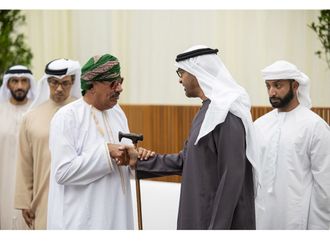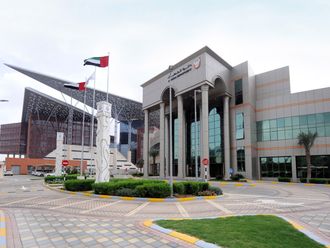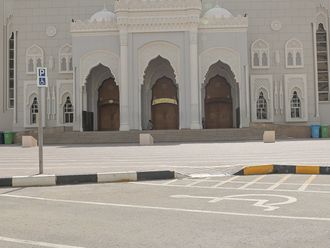
DUBAI The Dubai International Financial Centre (DIFC) launched a Wills and Probate Registry on Monday, allowing non-Muslims for the first time in the region to register a will in English under internationally recognised Common Law, thus enabling them to transfer assets as per their wishes upon their death.
The launch comes four months after XPRESS published an exclusive cover story on the landmark move.
Announcing the development in the presence of select media at the DIFC Courts, Michael Hwang, head of the Dispute Resolution Authority (DRA) and Chief Justice of the DIFC Courts, said: “At its heart, the registry (based on Resolution 4 of 2014) creates legal certainty for individuals of various origins living, investing and conducting business in Dubai that their assets can be transferred to their loved ones upon death according to their own wishes, reflecting their own laws, traditions and cultures.”
Until now, the distribution of assets of a deceased has been guided by UAE federal laws such as Personal Status Law, Civil Transactions Code and by public order.
Dr Ali Ibrahim Al Emama, Head of Cassation Courts, said Dubai Courts has also set up a committee to draft a law concerning wills and succession of non-Muslims in Dubai.
“A legislation regarding the writing of wills, the interpretation thereof, the devolution of the property and the administration of the estates of deceased persons is in the final drafting stages and we hope it shall be enacted by the end of the year.”
He said once the law is in place, Dubai Courts will set up an Arabic language registry to register wills for non-Muslims. It will be similar to the DIFC Wills and Probate Registry in English and the two will complement each other, with their own applicable rules and processes.
Mark Beer, CEO and Registrar of DIFC Courts, also addressed the gathering.
Cost factor
The cost of registering a will at the DIFC registry is $2,800 for an individual and $4,200 for a married couple. The fee for a guardianship-only will is $1,400 (individual) and $2,100 (husband-wife). The legal community has justified the high costs.
Alastair Glover, principal associate, Wragge Lawrence Graham & Co, said: “Whilst the cost of the DIFC will registration is not insignificant, particularly when added to the costs of appointing a lawyer to draft the will, most clients see the cost as good value for the certainty it provides in securing the succession to their estates on the terms they choose.”
He said: “To reject the DIFC will on the basis of cost would definitely be a case of penny wise and pound foolish when compared to the alternatives. After all, if the deceased does not leave any form of will or only makes an overseas will (which the executors seek to enforce in Dubai), the potential costs post death are likely to be significantly higher. In my experience, most clients agree.”
No deterrent
Nita Maru, solicitor and managing partner, TWS Legal Consultants, said: “The costs should not deter individuals from registering their will at the registry. It should ensure that Sharia law principles will not be applicable to the distribution of the Dubai estate upon death (whereas the regime within the UAE Courts works a discretionary basis and there is no guarantee that Sharia Law principles will be excluded.)”
She said: “It is of course for each individual to assess his or her own financial and family circumstances and the associated benefits of adopting e DIFC rules. Even given the costs involved, those with assets or having a specific guardianship requirement in Dubai may feel the costs are well justified to obtain the certainty and peace of mind for the future. Such wills will promote certainty amongst expatriates, promote investment in the region, and avoid family members becoming involved in uncertain proceedings that can be encountered in the UAE courts.”
Andrew Lyons, associate at Davidson & Co Legal Consultants, said: “The registration fee is more than one could expect to pay for the registration of a will at the Dubai Courts. But whilst the cost may be significantly greater, this is a very small price to pay for certainty.”
He said: “Whilst the Personal Status Law in Dubai recognises the right of a non-Muslim to elect for their foreign law (law of their country of domicile) to apply to a will they may have registered within the Dubai Courts, there is uncertainty as to whether this is competent both in respect of moveable and immoveable assets; or just immoveable assets, thus neglecting real estate and inconsistency as to the Court of First Instance’s application of the law.”
Lyons said: “It is a known fact that there have been incidents whereby the Court of First Instance and even the appeal courts have refused to recognise a non-Muslim’s request for his foreign law to apply to the winding up of their estate and for the Sharia law to therefore be imposed.
“Whilst the Court of Cassation, on board with the establishment of the DIFC Wills & Probate Registry, is as I understand it, unanimously in agreement as to the right to appoint one’s foreign law, it can often be a very costly process to obtain that court’s final ruling on the matter both in terms of time and money.
“With the possibility of bank accounts being frozen and even children being placed in temporary state care until final resolution of this issue, the majority is in agreement that the increased cost associated with a DIFC will’s registration is a very small price to pay for certainty, particularly given the risk of exposure to a greater cost (both emotionally and financially) in the event of a misapplication of the law or a poorly drafted will.”
HOW TO REGISTER A WILL
1.Have the will prepared by a qualified and licensed lawyer. The Registry website says: “A home-drafted will may be invalid or ineffective, causing burdens and expenses on your executors and beneficiaries”… it is advisable to consult a qualified legal representative”.
2.Obtain a signed declaration from any guardian nominated in your will. Your lawyer will assist you in ensuring that this declaration is in the correct format.
3.Book an appointment at the Registry online by the testator or your lawyer.
4.Meet your appointment for execution (signing) and registration at the registry. The execution will be in the presence of a registry officer and one witness chosen by the testator. This is to reduce the risk of challenges to the validity of the will.
5.The will is stored electronically at the registry as the original for the remainder of the lifetime of the testator (up to 120 years).
Source: TWS Legal Consultants
YOUSPEAK: What has prevented you from drawing up a will?











